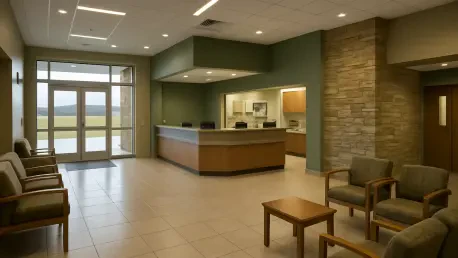Imagine a small rural town in Arkansas where the nearest hospital is over an hour away, and the local clinic struggles to keep a single doctor on staff due to chronic shortages, a scenario all too common in rural communities across the state where access to quality healthcare remains a persistent challenge. This situation highlights the urgent need for change, and a groundbreaking federal initiative, backed by a staggering $50 billion investment, offers a beacon of hope to address these disparities through the Rural Health Transformation Program. Announced by the Centers for Medicare and Medicaid Services (CMS), this ambitious effort targets the unique obstacles rural areas face, from limited provider availability to inadequate infrastructure. Arkansas has stepped up to seize this opportunity, with state leadership and stakeholders mobilizing to secure a significant share of the funds. This development marks a pivotal moment for rural healthcare in the state, promising innovative solutions and long-term improvements to a system in dire need of support.
Leveraging Federal Funding for Lasting Impact
The Rural Health Transformation Program splits its $50 billion into two equal tranches of $25 billion, designed to ensure both equity and competition among participating states. The first tranche guarantees a minimum of $100 million annually for five years to each approved state, providing a stable foundation for planning and implementation. Meanwhile, the second tranche operates on a competitive, points-based system known as “workload funding factors,” which evaluates states based on criteria like rural facility availability, population needs, and alignment with CMS priorities. Arkansas, under the guidance of Governor Sarah Huckabee Sanders, has confirmed its participation and opened a portal for stakeholder proposals to strengthen its application. This dual funding structure not only secures baseline support but also incentivizes states to tailor their strategies to address specific rural health gaps, potentially transforming access to care in underserved areas of Arkansas through sustained investment and innovation.
Data-Driven Strategies to Secure Competitive Edge
A critical component of Arkansas’s approach lies in harnessing detailed, localized data to build a compelling case for federal funding. Resources provided by state health organizations offer in-depth insights into rural healthcare challenges, covering aspects such as primary care physician shortages, obstetrics and gynecology workforce demographics, healthcare expenditure patterns, and even public health metrics like student body mass index at district levels. These data tools paint a comprehensive picture of the state’s needs, highlighting systemic issues like high medical costs and limited provider access in rural regions. By leveraging such evidence, Arkansas aims to score highly in the competitive funding tranche, ensuring that proposed initiatives align with federal priorities. This strategic use of data underscores a collaborative effort between state leadership and research entities, positioning Arkansas as a frontrunner in addressing rural health disparities with targeted, evidence-based solutions.









